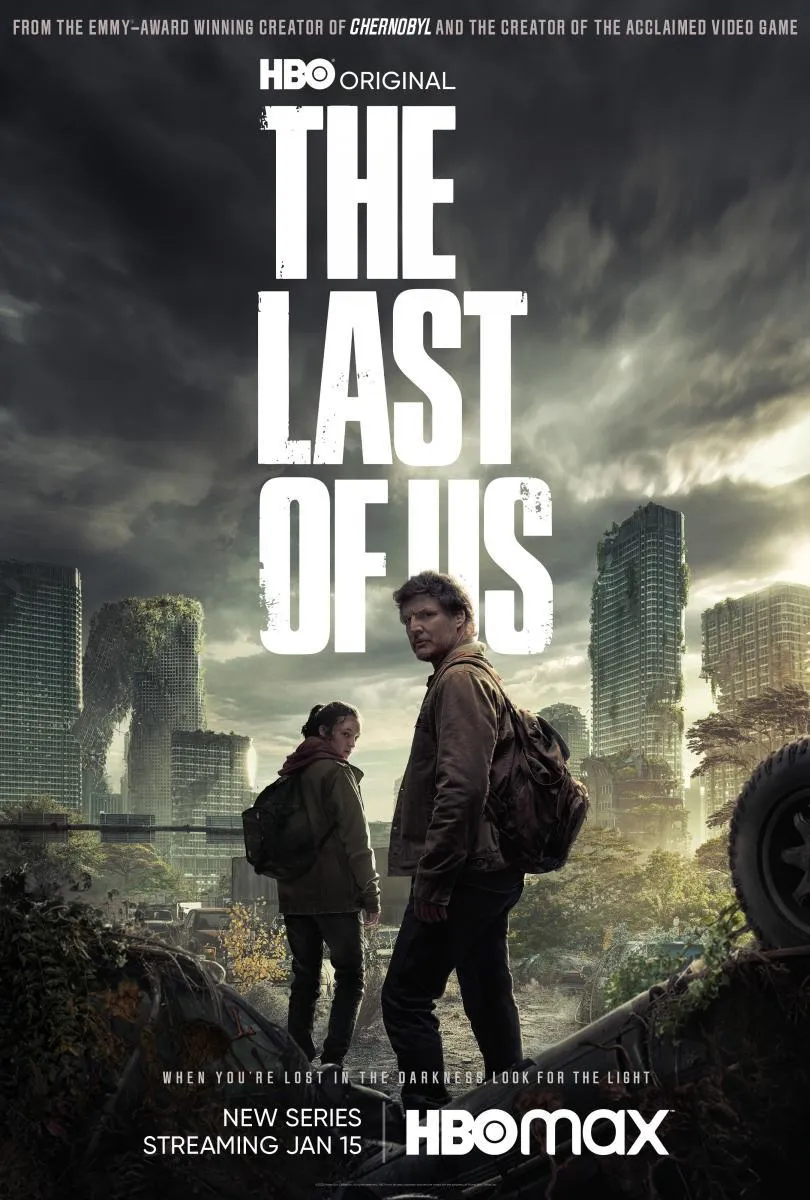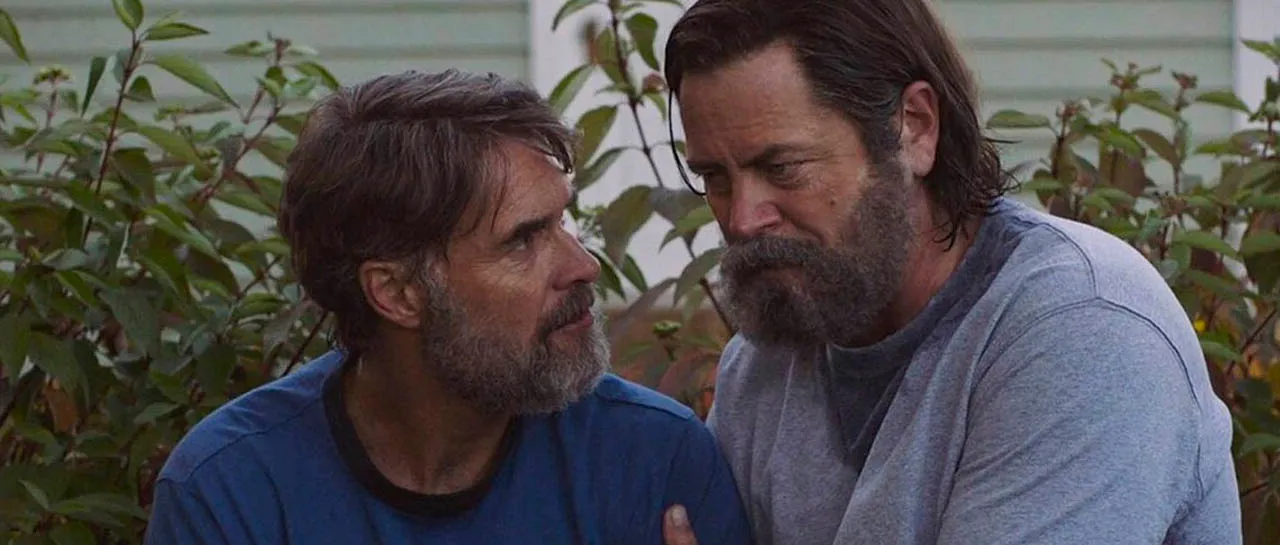
Despite the fact that a good portion of the critics are satisfied with the third chapter of The Last Of Us, to the point that in fact it is considered the best of the entire season, I am a little sorry to find a large number of negative opinions about it. In this regard, not so much because I feel that my positive opinion should prevail over others, but rather because these criticisms are often unfounded and fail to understand the true thematic core of the entire series.
For this very reason, the idea of analyzing the events that occurred in "Long, long time" seemed interesting to me, vaguely comparing it with what happened in the original video game, to try to externalize why, at least in my humble opinion, we are facing a Beautiful adaptation that deviated from the source material in just the right way.
Those of us familiar with The Last of Us video game already knew that Bill was a homosexual character, and although this time it was something that was approached with a slightly more "simple" and almost anecdotal perspective, the pillars for telling a romantic story They were already established, it was just necessary to take advantage of it.
What did Bill from the video game have in common with the recent adaptation by Nick Offerman? (Which by the way is one of the most successful decisions within the entire cast) Apart from their sexual orientation, both characters were paranoid, repressed and aggressive men, without having to leave aside the methodical.
While I feel that the original vision was apt within the confines of the game (Starting with the fact that he leaves a lot of traps around him to make it difficult for us to get close to him), HBO's TLOU instead uses him to reinforce the themes that have been beginning to settle since the first chapter.
And it is that regardless of whether it seems unnecessary to you or not that out of nowhere we follow a couple of men for 20 years... A period of time where we can observe them falling in love, arguing, connecting and sharing their last minutes of life, the moment in which Joel agrees with Ellie to what used to be Bill's home and Frank everything makes sense: although on the surface it seems this is not another mission for Joel, there is a personal connection with Ellie and that is why he must keep her safe.
In the video game, Frank commits suicide for reasons we can barely guess, while the series decides to end the lives of both simultaneously in order to give us what ironically could be one of the most optimistic endings of the entire season: if the engine Bill's life was love, what's the point of continuing to fight to survive if they've lost it?
And although in concrete terms Tess is attributed as Joel's life engine, the audience knows that after her sacrifice, the real impulse will come from Ellie, with whom he is gradually connecting.
The creative liberties that the Last of Us has taken throughout these 3 chapters have been good and "Long, long time" is a perfect example of this, the stories of the secondary characters are expanded organically, and each change it exists to realize a theme that was already present in the original game.
Those of us who already know how the story will end appreciate this level of consistency.


A pesar de que una buena porción de la crítica se encuentra conforme con el tercer capítulo de The Last Of Us, al punto en que de hecho es considerado el mejor de toda la temporada, lamento un poco encontrarme con una gran cantidad de opiniones negativas al respecto, no tanto porque sienta que mi opinión positiva debe prevalecer por encima de los demás, sino más bien porque estás críticas suelen están infundadas y fallan en comprender el verdadero núcleo temático de toda la serie.
Por esto mismo, me pareció interesante la idea de analizar los eventos ocurridos en "Long, long time", comparándolo vagamente con aquello que ocurrió en el videojuego original, para tratar de exteriorizar por qué, al menos en mi humilde opinión, estamos ante una adaptación hermosa que se desvió del material original de la manera correcta.
Los que estamos familiarizados con el videojuego The Last of Us ya sabíamos que Bill era un personaje homosexual, y aunque en esta ocasión era algo que se abordaba con una perspectiva un poco más "simple" y casi anecdótica, los pilares para narrar una historia romántica ya estaban establecidos, solo hacía falta aprovecharlo.
¿Que tenían en común el Bill del videojuego con la reciente adaptación de Nick Offerman? (Que por cierto es una de las decisiones mas acertadas dentro de todo el cast) Aparte de su orientación sexual, ambos personajes eran hombres paranoicos, reprimidos y agresivos, sin necesidad de dejar a un lado lo metódico.
Si bien siento que la visión original era apta dentro de los confines del videojuego (Partiendo por el hecho de que deja una gran cantidad de trampas a sus alrededores para dificultar que nos acerquemos a él), TLOU de HBO en cambio le utiliza para reforzar los temas que se han estado empezando a asentar desde el primer capítulo.
Y es que independientemente de que te parezca innecesario o no que de la nada sigamos a una pareja de hombres durante 20 años... Un lapso de tiempo en dónde podemos observarlos enamorándose, discutiendo, conectandose y compartiendo sus últimos minutos de vida, el momento en el que Joel accede junto con Ellie a lo que solía ser el hogar de Bill y Frank todo cobra sentido: aunque superficialmente lo parezca está no es una misión más para Joel, hay una conexión personal con Ellie y por eso debe mantenerla a salvo.
En el videojuego, Frank se suicida por motivos que apenas podemos intuir, mientras que la serie decide acabar con la vida de ambos simultáneamente con la finalidad de otorgarnos lo que irónicamente podría ser uno de los cierres más optimistas de toda la temporada: si el motor de vida de Bill era el amor, ¿Que sentido tiene seguir luchando por sobrevivir si lo han perdido?
Y aunque en términos concretos se le atribuye Tess como motor de vida a Joel, la audiencia sabe que luego de su sacrificio, el verdadero impulso vendrá por parte de Ellie, con quién poco a poco va conectando.
Las libertades creativas que the Last of Us se ha tomado a lo largo de estos 3 capítulos han Sido buenas y "Long, long time" es un ejemplo perfecto de ello, se amplían las historias de los personajes secundario de forma orgánica, y cada cambio existe para realizar un tema que ya se encontraba presente en el juego original.
Aquellos que ya sabemos cómo terminará la historia apreciamos este nivel de consistencia.

Twitter/Instagram/Letterbox: Alxxssss


